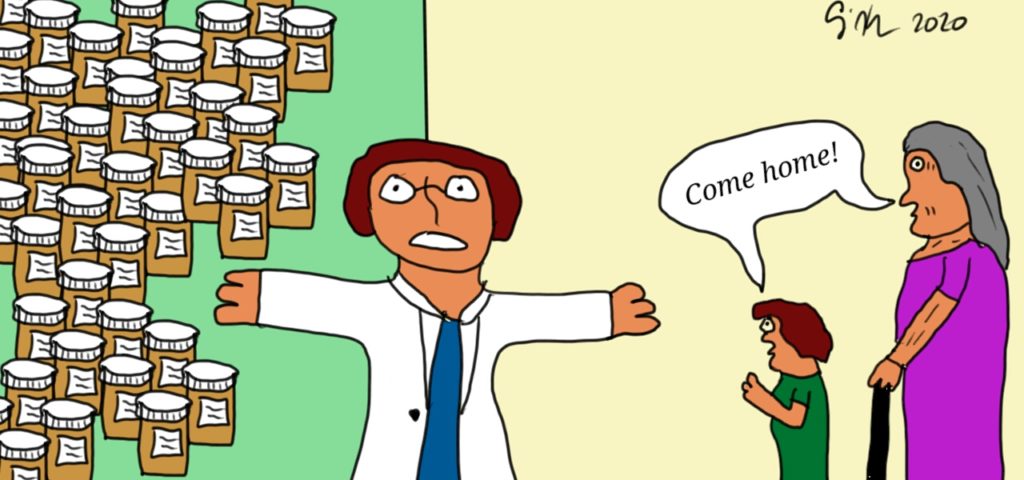by Amy C. Reese, MBe, PharmD
This country is in the midst of a health crisis. These past few weeks have reminded me of the ingrained duty that each healthcare professional has to patients. We take an oath to provide care and protect our patients when we are inaugurated into the profession of our chosen healthcare field. I am a pharmacist who currently works in the community; as such, I am the most accessible healthcare professional (I am considered a provider in some states). I was reminded of my duty to each patient this week because the crisis poured into community pharmacies. My community pharmacy usually fills about 150 to 250 prescriptions daily (depending on the day). This week we filled around 300 prescriptions daily (and even 650 prescriptions one day) as people tried to get multiple months’ worth of their medications before socially isolating. Many acute health concerns can arise if a patient does not receive /their medication. For instance, if a patient taking a blood pressure medication goes without it for a few days (due to the backlog of prescriptions), the patient is at risk of a serious medical condition known as hypertensive emergency where the blood pressure spikes beyond a reasonable level. Another example is a patient not starting antibiotic treatment for an infection due to the high volume of prescriptions with which pharmacies are currently dealing. The patient’s infection could become worse which would probably send them to the hospital. Either of these cases would overwhelm the healthcare system. Hospitals do not need any more patients right now as they are burdened by this pandemic.

The COVID-19 outbreak has caused hysteria at grocery stores and warehouse retail stores. In the state where I practice, there were stories of people fighting in the aisles over toilet paper. The local government of a major metropolitan area near me closed all non-essential businesses such as restaurants, bars, and gyms as of March 17. Grocery stores, gas stations, and pharmacies are being kept open due to the necessity of those businesses. I am thankful that I still have the ability to serve my patients in need.
The task of fulfilling this sudden influx of large prescription orders is impossible to accomplish with only one pharmacist and one-and-a-half pharmacy technicians throughout the day. I went into work on my day off without pay just to help fill prescriptions. I volunteered my time to ensure that my patients received their prescriptions on time because I have a responsibility to them. I was reminded why I decided to go into healthcare this week: because I am willing to sacrifice for the greater good and help people.
These recent events have shed a light on the importance of disaster ethics within healthcare. Disaster ethics in medicine discusses disaster triage, informed consent, quarantine/isolation, community participation, etc. As a community, we are practicing social distancing to limit the spread of the coronavirus, but those of us who are called to serve in the health professions have a duty to go above and beyond what is expected of the lay person for those in need. If a healthcare provider also takes care of an elderly person at home, then the professional duty to care for others may conflict with their personal family responsibilities. Coming home after being around others all day, could turn the health care provider into a vector, posing a risk to the health of the elder. This ethical dilemma can pull a health care provider between competing duties of helping others and not bringing the virus home. Since, I am a healthy individual who does not have personal responsibilities to care for people at home, my duty is to participate in the community to aid those in need. I have a responsibility to go into the community and attend to their needs to ensure people are kept.
Pharmacies all over the country are drowning in the increased number of prescriptions; they cannot keep up with the volume. Therefore, pharmacists must answer the call of community participation. All healthcare professions pursued this type of career because they have a deep desire to help people. With few responsibilities at home, I can not only be part of community participation I can help my colleagues who are torn by their competing duties. This is the moment when we are needed most. We must give our time and energy to serve our patients.